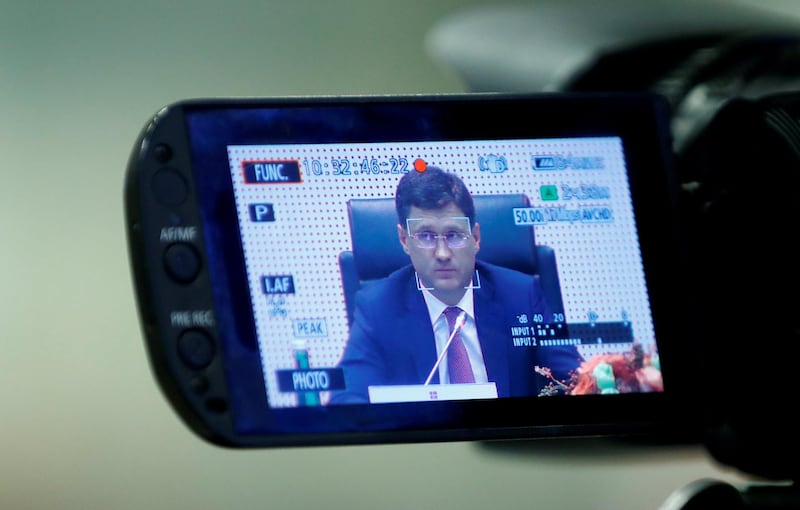Opec and Russia said they were about halfway toward clearing a global oil glut and urged fellow producers to stay focused and finish the job, while stopping short of additional action to reassure a jittery market.
The producers, who together pump more than half the world’s oil, have reasons to hold a steady course. At a meeting in Vienna on Friday, ministers hailed the accelerating market recovery as Brent crude, the international benchmark, climbed to a six-month high. Still, predictions of strong growth in US shale production next year mean there are still concerns that the scheduled expiry of the agreement at the end of March could be premature.
“The process is working fine so far,” Kuwait’s oil minister Issam Almarzooq said after the meeting. “We hope that we can consume the remaining overhang in this period“ so it’s not possible to say whether the cuts will need to be extended until closer to expiry, he said.
Nine months into the agreement between Opec and allies including Russia to cut production, there are both positive an negatives signs. Bloated stockpiles of fuel have been “massively drained” and the group implemented more than 100 per cent of its agreed cuts last month, said the Opec secretary general Mohammad Barkindo.
Even if that level of compliance continues, supply and demand would be finely balanced next year and ending the accord could put the market back in surplus, data from the International Energy Agency indicate.
_______________
Read more:
Opec's rebalancing strategy shifts as US oil imports drop
Oil demand rising as output cuts reduce supply glut, says IEA
Saudi Arabia said to plan nuclear power tender in October
_______________
The Russian energy minister Alexander Novak acknowledged the need for flexibility, while also making clear its commitment to the deal was not open ended.
“Any agreement - especially an agreement aimed at balancing the market, supply and demand - has to end somewhere,” Mr Novak said after the meeting. “A gradual, slow exit strategy” could begin between the second and fourth quarters of 2018 when “demand can absorb additional supply”, he said.
It is impossible to make a decision now and “I believe we can raise the issue of extending the deal with needed specifics no earlier than in January”, Mr Novak said.
Opec left its other pressing issue - rising production from Nigeria and Libya, which are exempt from cutting - for a later date.
After a long period of output disruptions due to attacks on oil infrastructure, neither country has stabilised production enough to be given a formal cap, said Mr Almarzooq.
Caps for both Libya and Nigeria were discussed, but not finalised at Friday’s meeting. It would be good for those countries to participate in the effort to balance the market once they can achieve and maintain a specific production level, Mr Novak said.
Nigeria' minister of state for petroleum Emmanuel Ibe Kachikwu reiterated before the meeting that his country would accept an output cap once security in its oil-producing region has fully stabilised.
"Militancy is down, there’s a bit more calm in the Niger Delta areas - our production has gone from the all time low of about 1.1 million barrels a day up to about 1.7 million to 1.75 million," he said. When the country achieves consistent production of 1.8 million barrels a day “we will basically place a cap on ourselves”, he said.





